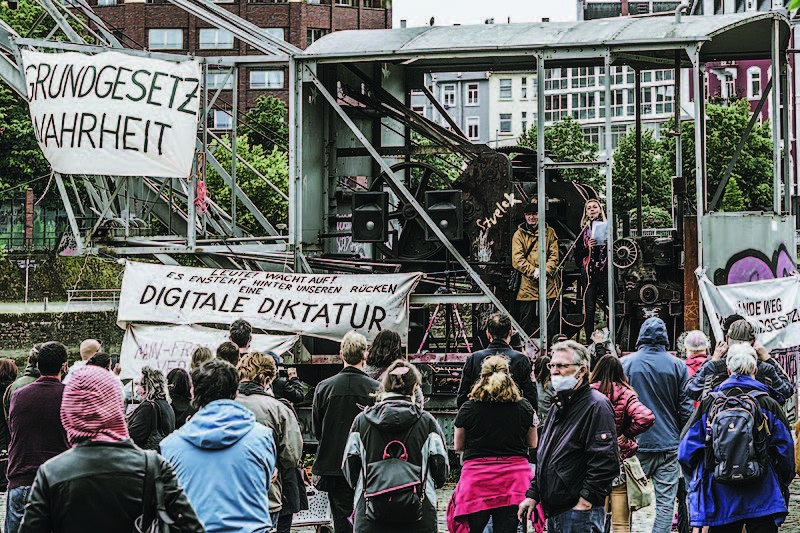

Frankfurt. Fourth manifestation against the Corona restrictions. June 7, 2020 (source: 7C0 | Flickr – Creative Commons).
The worldviews supporting protests against measures (such as the compulsory wearing of masks) for preventing the pandemic in Germany appear to be more strongly influenced by alternative religious beliefs than by evangelical and rightwing ones, writes Kai Funkschmidt in Zeitschrift für Religion und Weltanschauung (2/2021). Funkschmidt summarizes the converging conclusions of two recent, unrelated reports—one (not meant for public release) prepared in November by the German Federal Criminal Police Office (BKA), the other released in December by a team of sociologists at the University of Basel, Switzerland. The BKA report stresses that the protests gather a heterogeneous political and religious milieu in which a wide range of beliefs and symbols appear.
According to the data gathered by the University of Basel researchers, 23 percent of the German protesters in their sample had voted for the Green Party, 18 percent for the left, and 15 percent for the right-wing AFD in the last German elections. But only 1 percent intended to vote for the Greens and up to 27 percent for the AFD in the next elections, indicating a shift to the right, although it should be added that a striking majority of 61 percent intended to support small, fringe parties. Among Austrian and Swiss protesters, the percentage of those with initial right-wing sympathies was markedly higher. At the religious level, active Christians seemed to make up a small minority among the protesters. On the other hand, there was strong sympathy for holistic and spiritual thought as well as support for alternative healing methods.
(Zeitschrift für Religion und Weltanschauung, https://ezw-berlin.de/; Oliver Nachtwey, Robert Schäfer, and Nadine Frei, “Politische Soziologie der Corona-Proteste,” December 2020, https://doi.org/10.31235/osf.io/zyp3f)